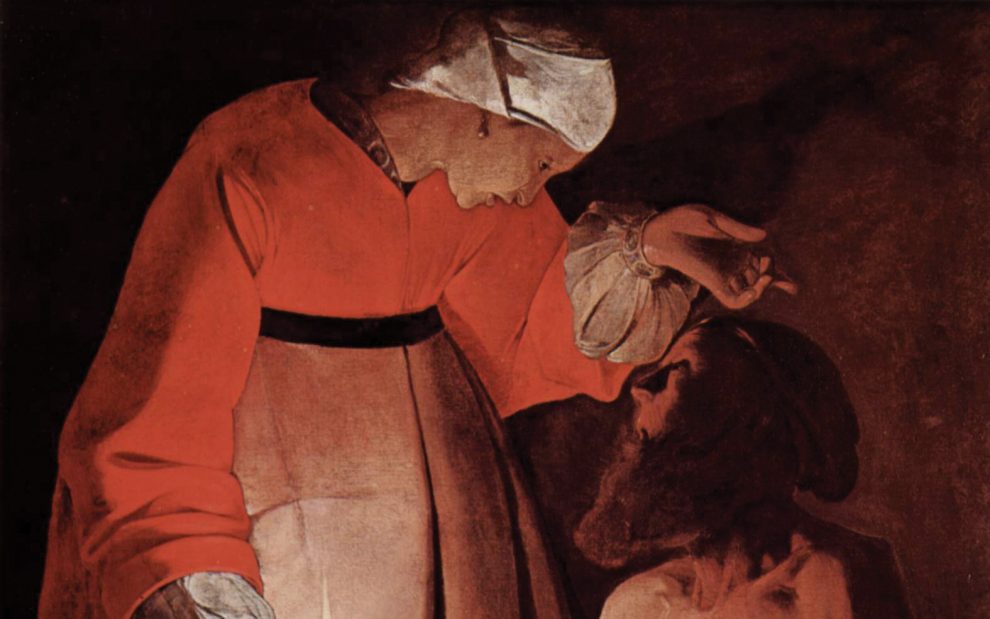I have a friend in Europe who can barely keep a job. She’s brilliant, well-educated, charming, and loaded with experience in all aspects of her profession. The problem is her emotional state, which, even with therapy and medication, is always one meltdown away from another pink slip.
Another friend who went to school with me passed all the same exams I did. Yet she hasn’t worked in 20 years. Depression keeps her at home, struggling to get out of bed each morning and to fill the days with meaning. Shame at her apparent failure paralyzes her efforts.
A third friend has worked at the same job for decades but finds no joy in it—or in anything, to be honest. He’d like to retire and is eligible to do so. Yet a dark cloud sits over his ability to make decisions. He keeps hoping the choice to leave his job will be taken out of his hands by forces outside of his control.
Chances are we all know people who suffer from poor mental health of one kind or another. The World Health Organization defines mental health as more than the absence of mental disorders. Mental wellness is the state of being able to cope with life stressors, to learn and to work well, and to contribute to family and community in a way that provides a certain amount of fulfillment.
To be sure, not all of us tap dance to work on Monday morning. And in some seasons of life, our circumstances may be far from carefree. I’ve had jobs I heartily disliked, bosses I couldn’t please, relationships fraught with conflict, financial precarity that filled the nights with anxiety. I’ve endured low periods that kept me in emotional or career stasis for longer than was good for anyone concerned. But given enough time and support, I managed to squirm out of difficulty and back into the sunshine. Being able to find safe passage through dark times is a feature of mental well-being and resilience.
For a variety of reasons, that resilience doesn’t function adequately for everyone—or perhaps for anyone under the wrong circumstances. Genetics, grief, displacement from home, disability, substance abuse, and trauma are just a few of the factors that can make mental resilience nearly impossible. There’s little encouragement in being browbeaten by religious messages that tell us our job is to share good news with confidence, to exhibit joy without a hint of fear.
Does the Bible have any examples of people who struggle with mental darkness? Job instantly springs to mind, crying out on his dung heap in losses without consolation. The priest Ezekiel, in exile in Babylon, demonstrates symptoms of a troubled mental state, including catatonia, paralysis, and what might be described as hallucinations—unless you prefer to call them visions. Jeremiah suffers profound melancholy at the needless destruction of his community and rejection by his allies. We might call Jeremiah paranoid too, if his enemies weren’t really out to get him.
Many psalm writers compose lamentations that give poignant voice to a community-wide sense of desolation and loss of hope. Mary Magdalene, we’re told, was possessed of seven demons before she met Jesus. And plenty of other folks in her generation suffered similar excruciating afflictions, bound up in disordered mental states that tormented them and likewise robbed them of communal support.
Doubtless there were others, though scripture doesn’t linger on their stories. Jacob’s lone daughter, Dinah, for example. After being sexually assaulted by the prince of Shechem and becoming her brothers’ excuse to wreak vengeance on the entire community, Dinah never marries or bears children, as we learn later in the catalogue of descendants. We can imagine her young trauma, followed by years of scandal, shame, and isolation, made trust and recovery difficult. It’s likely the rest of Dinah’s story was as unhappy as the part we know.
Or consider Hagar, Sarah’s maid. Hagar was a foreign woman enslaved in a wandering Aramean tent community. She was presented to Abraham, the head of his tribe, as a sort of parting gift by her people. Handed once more to Abraham by Sarah as a means to an end—bearing an heir in Sarah’s stead—this young woman is obliged to have relations with a very old man who hopes for a son. After Hagar bears one, she’s subsequently beaten and abused by a jealous Sarah. Later, when Sarah finally bears her own child, Hagar and her son, Ishmael, are both driven from the community into the wilderness. Isn’t it likely that Hagar wrestled through some darkness? Wouldn’t her son, rejected by his father, impoverished, and raised in the wild, carry his own mental scarring?
It’s Job, of course, whose depression is most celebrated—if you can use the word celebrate in the same sentence as depression. Job endures sleepless nights, during which all the monsters of his tragedy come out to haunt him. Job suffers months of misery, hopeless days followed by endless nights in a cycle of acute anguish. Who could blame him? Job lost all of his children in a single accident, along with his wealth and physical health in a series of calamities that culminate in his wife walking out. When pious friends arrive to lend their comfort, they proceed to tell Job this long cycle of catastrophe was visited on him because he offended God.
Job’s trauma is comprehensive. Expecting a man to “cope” with a burden this vast and crushing is anticipating something beyond mortal limits. Job weeps, screams, curses, and demands. He’s not the patient Job sometimes erroneously held up as a model of faithful suffering. Job wishes for death. He wants someone to answer his pain: to prove he deserves it or to redress the wrong. He rejects the pat responses of religion. Eventually, Job comes to believe only a direct audience with God can provide him with understanding big enough to cover his deep open wounds.
When Job finally has his encounter with God, he’s not handed an envelope with a curative explanation inside. Instead, God offers Job a cascade of rhetorical questions—some counts put these at 77, others at 140—aimed at convincing Job that he’s not intellectually equipped for the conversation he hopes to have. Your question is too big and your experience too small, God seems to suggest. Apparently, Job accepts this answer, repenting in dust and ashes for having demanded to know why a good person should have to suffer.
I’m no therapist. But I’d like to be a good friend or at least a pastoral presence to the many people I meet who suffer with burdens too great for them to surmount. Does it help to know that human suffering is a mystery too wide to cross, too deep to fathom? Maybe Job exhibits a bit of pride in insisting that his pain be explained to him, justified by some standard of divine fairness. Yet many of us might wish only for our darkness to be lifted, and not demand to know why it befell us to begin with.
Maybe it would have been enough or brought some small consolation if Job’s wife had remained to hold his hand. If his friends had just kept vigil with him and withheld their theological whitewash. Maybe all we can do with the world’s suffering is be present and be a friend. Talk is cheap. Care is priceless.
This article also appears in the February 2024 issue of U.S. Catholic (Vol. 89, No. 2, pages 47-49). Click here to subscribe to the magazine.
Image: Job Mocked by His Wife, Georges de La Tour. Wikimedia Commons.















Add comment